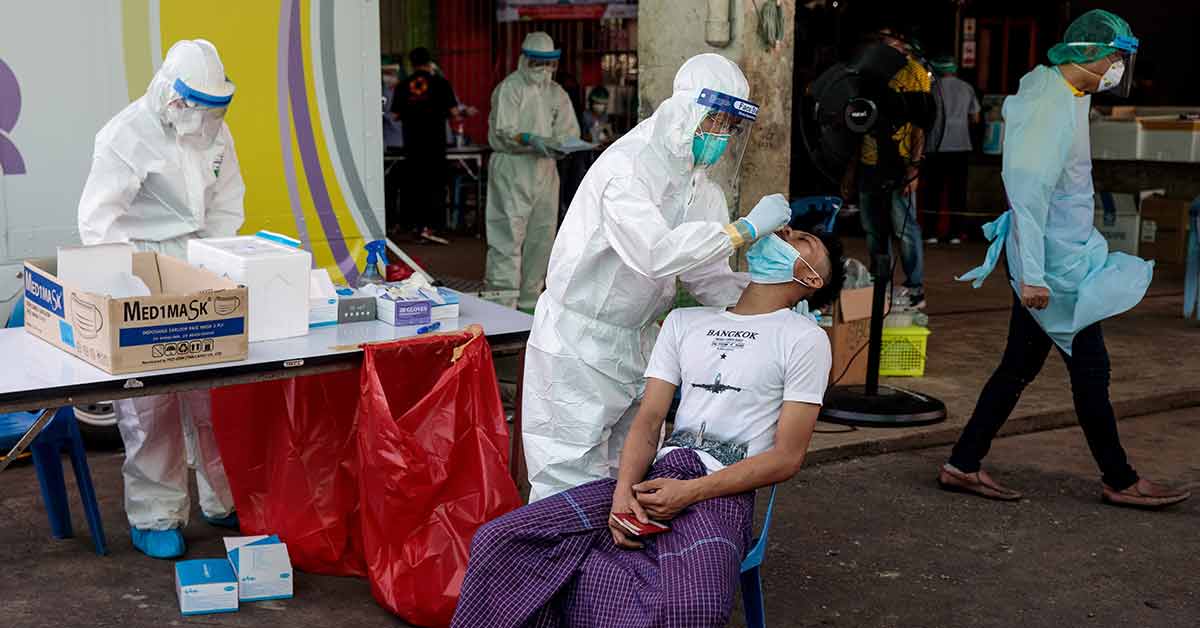Thai Prime Minister Prayut Chan-o-cha on Monday blamed a coronavirus outbreak linked to the kingdom's largest seafood market on low-paid migrant workers employed in the country's lucrative shrimp industry.
Thailand has been on high alert since Thursday when a 67-year-old prawn seller from Mahachai market tested positive for coronavirus.
Contact tracing and mass testing found more than 800 cases so far linked to the site - a major outbreak for a country which previously had just 4,000 confirmed infections.
The majority of the new cases are workers from Myanmar, who toil on shrimping boats and in processing factories linked to the multi-billion-dollar Thai seafood industry.
On Monday Prayut blamed the outbreak on factories employing illegal migrant workers, who he accused of illegally crossing the porous Myanmar-Thailand border.
"They snuck out and came back in," he said.
Thailand shares a 2,400-kilometre (1,500-mile) border with Myanmar - which has seen an alarming spike since August and still registers some 1,000 new cases a day.
"I have told authorities there must be a system to trace workers," he said, adding that he was hopeful the situation would improve in a week.
Health officials said the infection rate at Mahachai market is "about 42 percent".
The market and its vicinity have been on lockdown since Saturday with the thousands living there barred from leaving.
On Monday the market was ringed by barbed wire and authorities distributed food to workers quarantined inside.
Myanmar shrimp transporter Min Min Tun said it was "unfair and one-sided" that Thais were blaming them without evidence.
He added that no information has been provided about who has tested positive, causing fear in the worker community.
"We could all be infected since we don't have the information who to avoid and where not to go," he said.
Thailand's economy is highly reliant on millions of low-wage labourers from neighbouring Myanmar and Cambodia who keep the kingdom's seafood, manufacturing, construction and service sectors humming.
But the migrant workforce faces widespread discrimination, and the outbreak has ignited anti-Myanmar sentiment among Thais - including for those who live and work among the Myanmar community in Mahachai.
"I would not get close to them under any circumstances," said food vendor Maneerat Jekpan working outside the market, admitting she was "anti-Burmese".
Despite her animosity, she still brought food to the quarantined workers because she was "worried they wouldn’t have anything to eat". - AFP
